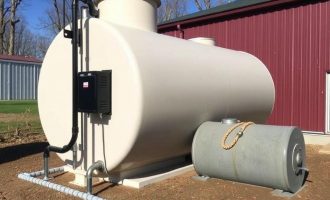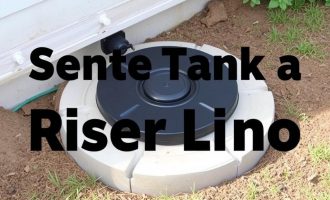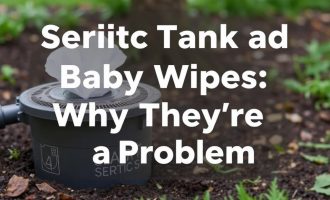Septic tanks play a crucial role in managing household wastewater, especially in rural and suburban areas without access to centralized sewage systems. These underground tanks break down and treat wastewater from toilets, sinks, laundry, and showers in your home. Proper maintenance of a septic tank is essential to prevent costly repairs and environmental damage. One key aspect of maintaining your septic system is being mindful of the chemicals you introduce into it. Septic tank chemicals to avoid are many and varied, ranging from harsh cleaning agents to substances that disrupt the natural bacterial balance essential for the tank’s operation. If you’re wondering which chemicals are harmful and why, you’ve come to the right place. This article will guide you through the list of septic tank chemicals to avoid, explain their effects, and suggest safer alternatives to keep your system running smoothly.
- Understanding How a Septic Tank Works
- Why Avoid Harmful Chemicals in Septic Tanks?
- Common Septic Tank Chemicals to Avoid
- 1. Harsh Bleach and Chlorine Products
- 2. Drain Cleaners Containing Lye or Sulfuric Acid
- 3. Solvents and Paint Thinners
- 4. Excessive Use of Antibiotics
- 5. Grease, Oils, and Cooking Fats
- 6. Pesticides and Herbicides
- 7. Antibacterial Soaps and Detergents
- Why Some Chemicals Are More Harmful Than Others
- Safe Alternatives to Harmful Septic Tank Chemicals
- Household Tips to Protect Your Septic System
- Signs Your Septic System May Be Suffering from Chemical Damage
- The Environmental Impact of Septic Tank Chemicals
- Common Myths About Septic Tank Care
- Summary of Dos and Don’ts for Septic Tank Chemical Use
- Final Takeaway: Safeguarding Your Septic System Through Careful Chemical Use
- Conclusion
Understanding How a Septic Tank Works
Before diving into the specifics of septic tank chemicals to avoid, it’s helpful to understand how a septic tank functions. A septic tank is essentially a large underground container where wastewater from your home gets collected. In this environment, solid waste settles to the bottom as sludge, lighter waste floats to the top as scum, and the remaining water exits into the drain field for further natural filtration and absorption by the soil.
The most important part of the septic process is the natural bacterial activity that breaks down the solids inside the tank. These bacteria digest organic matter and keep the tank from filling up too quickly with sludge. However, if you introduce certain chemicals into the system, you can kill or disrupt this bacterial action, leading to system failure, foul odors, backups, and expensive repairs.
Why Avoid Harmful Chemicals in Septic Tanks?
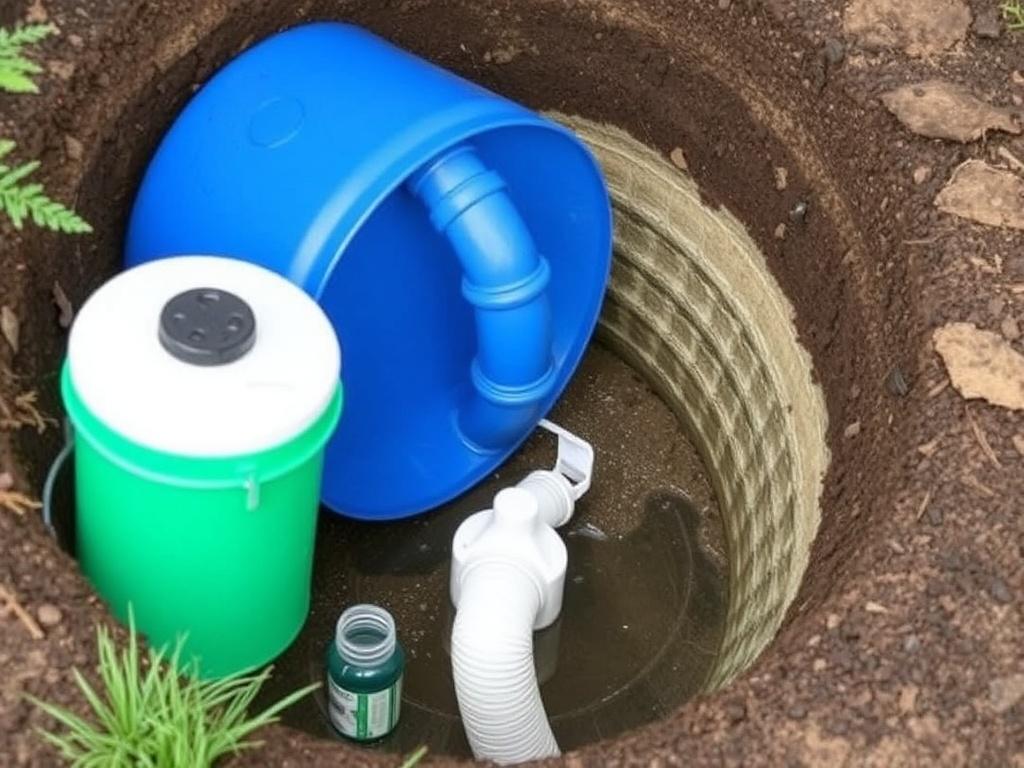
Maintaining a healthy bacterial ecosystem inside your septic tank is vital. When toxic chemicals enter the system, they can:
- Kill beneficial bacteria that break down waste
- Cause blockages or damage to the drain field
- Lead to slow drainage and eventual backups
- Contaminate the local environment through leaching
- Increase the frequency and cost of septic tank pumping
By avoiding certain chemicals, you protect not just your septic system but also your property and surrounding environment. The key is knowing what chemicals to steer clear of.
Common Septic Tank Chemicals to Avoid
Let’s go through the most important septic tank chemicals to avoid. These include everyday household products and industrial chemicals that can seriously harm your septic system.
1. Harsh Bleach and Chlorine Products
Bleach is a common household disinfectant, but large amounts of bleach or chlorine-based cleaning products can devastate septic bacteria. While small quantities, like occasional use in toilets, are generally okay, regular and heavy usage will upset your tank’s biological balance.
2. Drain Cleaners Containing Lye or Sulfuric Acid
Drain cleaners are often highly caustic, containing lye (sodium hydroxide) or sulfuric acid to dissolve clogs quickly. While these products may work well for pipes, they can kill bacteria in your septic tank and corrode the system.
3. Solvents and Paint Thinners
Many solvents, such as paint thinners, turpentine, and other chemicals used in home improvement, do not break down in the septic system. They poison the bacteria and contaminate the soil around your drain field.
4. Excessive Use of Antibiotics
Antibiotics disposed of in the toilet or sink can harm the natural bacteria population in your septic tank. While small traces don’t generally cause harm, flushing large quantities (for example, expired antibiotics) can disrupt bacterial activity.
5. Grease, Oils, and Cooking Fats
Though not traditional “chemicals,” grease and oils can cause significant problems in a septic system. They solidify and create scum layers that reduce tank capacity and hinder waste breakdown.
6. Pesticides and Herbicides
If you pour garden chemicals down your drains, you risk poisoning the bacterial environment of your septic tank. These chemicals can cause long-lasting ecological harm if they leach into soil and groundwater.
7. Antibacterial Soaps and Detergents
Though marketed as safe, antibacterial soaps and detergents kill bacteria, including beneficial bacteria in your septic tank. Excessive or regular use should be avoided to maintain a healthy bacterial ecosystem.
| Chemical Type | Common Source | Effect on Septic Tank | Recommended Action |
|---|---|---|---|
| Bleach and Chlorine Products | Household Cleaning | Kills beneficial bacteria | Use sparingly and dilute |
| Drain Cleaners | Pipe Maintenance | Corrodes system and kills bacteria | Use mechanical alternatives |
| Solvents and Paint Thinners | Home Improvement | Poison bacteria and contaminate soil | Dispose at hazardous waste sites |
| Antibiotics | Medical Waste | Disrupt bacterial balance | Do not flush excess |
| Grease and Oils | Cooking | Forms scum layers, clogs system | Dispose in trash, not drains |
| Pesticides and Herbicides | Gardening | Poison bacteria; environmental harm | Avoid drain disposal |
| Antibacterial Soaps | Personal Hygiene | Kill beneficial bacteria | Use mild, septic-safe soaps |
Why Some Chemicals Are More Harmful Than Others
Not all chemicals have the same impact on septic tanks. The degree of harm depends on how a chemical interacts with the system’s bacteria and the physical structure of the tank and drain field. For example, bleach and chlorine kill bacteria quickly but break down relatively fast in the environment when diluted. In contrast, solvents and pesticides can linger for years in soil, causing long-term damage.
Another factor is quantity. Occasional small amounts of a chemical might not cause damage, but regular or large doses will have cumulative negative effects.
Safe Alternatives to Harmful Septic Tank Chemicals
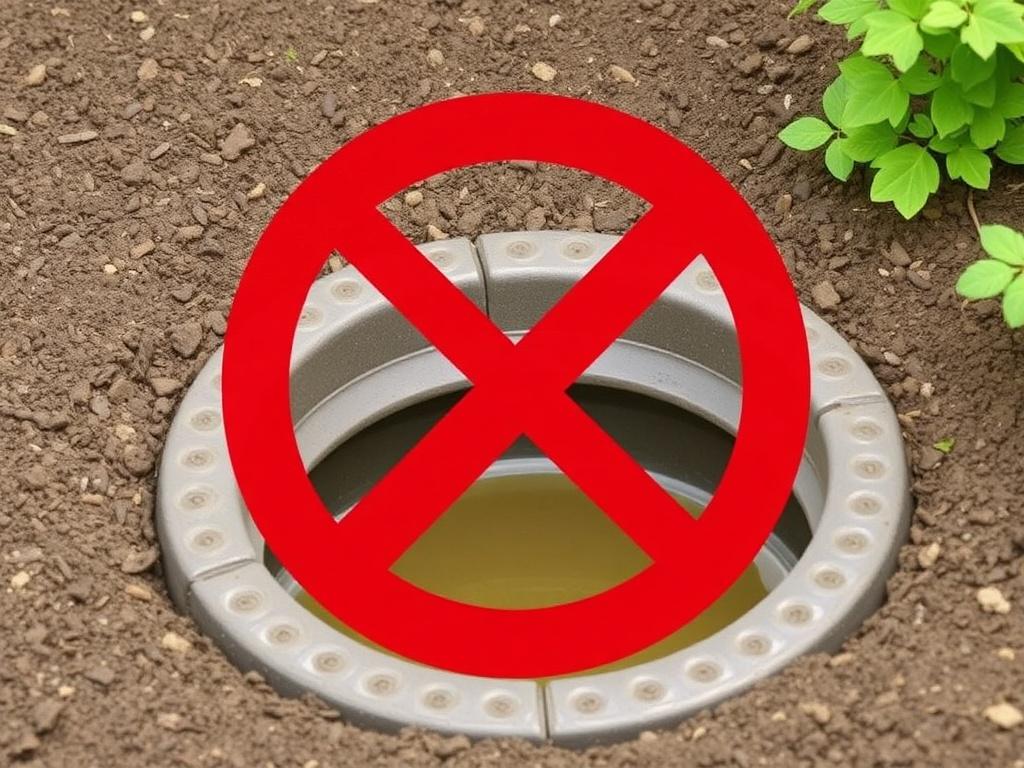
Fortunately, you don’t have to give up cleanliness or home maintenance to protect your septic system. Here are some safer alternatives to common harmful chemicals:
- Natural Cleaners: Use baking soda, white vinegar, and lemon juice for cleaning surfaces and deodorizing drains.
- Septic-Safe Soaps: Choose biodegradable, phosphate-free detergents and soaps designed for septic systems.
- Mechanical Drain Cleaning: Use plungers or drain snakes instead of chemical drain cleaners.
- Proper Disposal: Take paints, solvents, and hazardous chemicals to local hazardous waste collection centers.
- Use Moderate Amounts of Bleach: When necessary, dilute bleach heavily to reduce bacterial damage.
Household Tips to Protect Your Septic System
Here are some everyday habits to prevent chemicals from harming your septic tank:
- Do not flush medications or antibiotics; dispose of them through pharmacy take-back programs.
- Pour grease and oils into a container and dispose of them in the trash instead of down kitchen drains.
- Limit use of antibacterial soaps and sanitizers.
- Regularly schedule septic tank inspections and pumping as recommended by professionals.
Signs Your Septic System May Be Suffering from Chemical Damage
If you suspect harmful chemicals have entered your septic tank, watch for these warning signs:
- Slow Drains: Water takes longer to drain in sinks, tubs, and toilets.
- Foul Odors: Sewage smells near your home or yard indicate system backups.
- Pooling Water: Wet spots or soggy areas near your drain field suggest failure.
- Frequent Pumping: If your septic tank fills rapidly, it may point to bacterial death upstream.
If you notice any of these symptoms, call a septic professional for inspection and advice.
The Environmental Impact of Septic Tank Chemicals
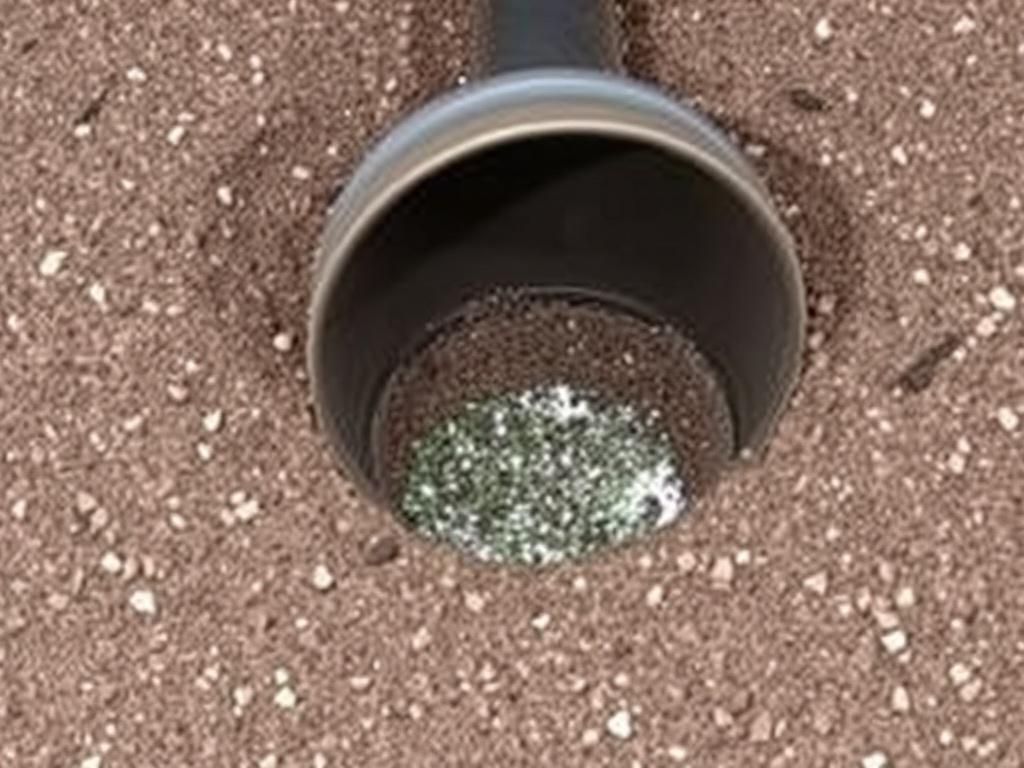
Beyond damaging your septic system, disposing of harmful chemicals down the drain poses environmental risks. Once these substances enter the drain field, they can leach into soil and groundwater, contaminating drinking water sources and harming wildlife. Agricultural pesticides and industrial chemicals are especially dangerous because of their persistence and toxicity.
Being mindful about septic tank chemicals to avoid helps protect not only your home but the broader ecosystem you live in.
Common Myths About Septic Tank Care
Misconceptions abound about what helps or harms a septic tank. Let’s clear up some of the most common myths:
- Myth: More bleach cleans better and protects septic tanks. In reality, excessive bleach can kill tank bacteria and cause system failure.
- Myth: Chemical drain cleaners are necessary for clogs. Mechanical methods are safer and effective alternatives.
- Myth: Septic systems treat all household chemicals effectively. Many chemicals disrupt bacterial activity or damage the drain field.
- Myth: Septic tanks don’t require maintenance. Regular inspection and pumping are essential.
Summary of Dos and Don’ts for Septic Tank Chemical Use
| Dos | Don’ts |
|---|---|
| Use septic-safe, biodegradable cleaners | Use harsh chemical cleaners frequently |
| Dispose of hazardous chemicals properly | Pour solvents, paint thinners down drains |
| Limit grease and oils in drains | Flush antibiotics or medications |
| Schedule regular septic tank pumping | Ignore signs of system backup and damage |
Final Takeaway: Safeguarding Your Septic System Through Careful Chemical Use
The health of your septic tank hinges on the delicate balance of bacteria breaking down household waste. Introducing chemicals that disrupt this balance can lead to costly damage, system failure, and environmental contamination. Understanding septic tank chemicals to avoid is the first step towards responsible maintenance. By steering clear of harsh bleaches, chemical drain cleaners, solvents, pesticides, and excessive antibacterial products, and by adopting safer cleaning alternatives, you extend the life of your septic system and protect your home and environment. Remember, every small action counts when it comes to septic care; treating your system mindfully ensures it will continue to serve you efficiently for years to come.
Conclusion
Taking care of your septic tank means being aware of the chemicals you allow to flow into it. Avoiding harsh disinfectants, corrosive drain cleaners, stubborn solvents, and unnecessary antibiotics protects the vital bacteria that keep your system functioning. Equally important is proper disposal of hazardous substances and minimizing grease in drains. By adopting simple habits and making mindful choices, you safeguard your septic system, save money on repairs, and contribute to a healthier environment. Ultimately, septic tank chemicals to avoid are easily managed with awareness and care—your septic tank, your home, and your environment will thank you for it.
Помогла вам статья?


